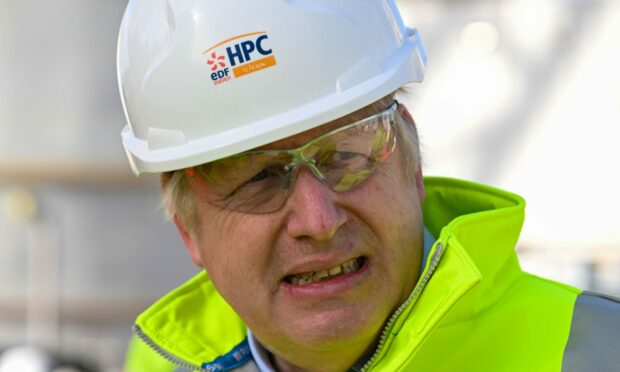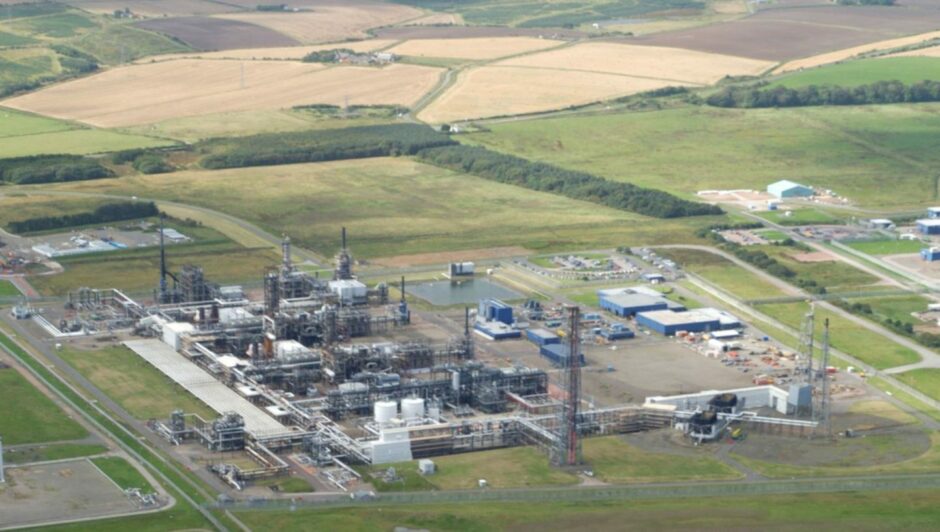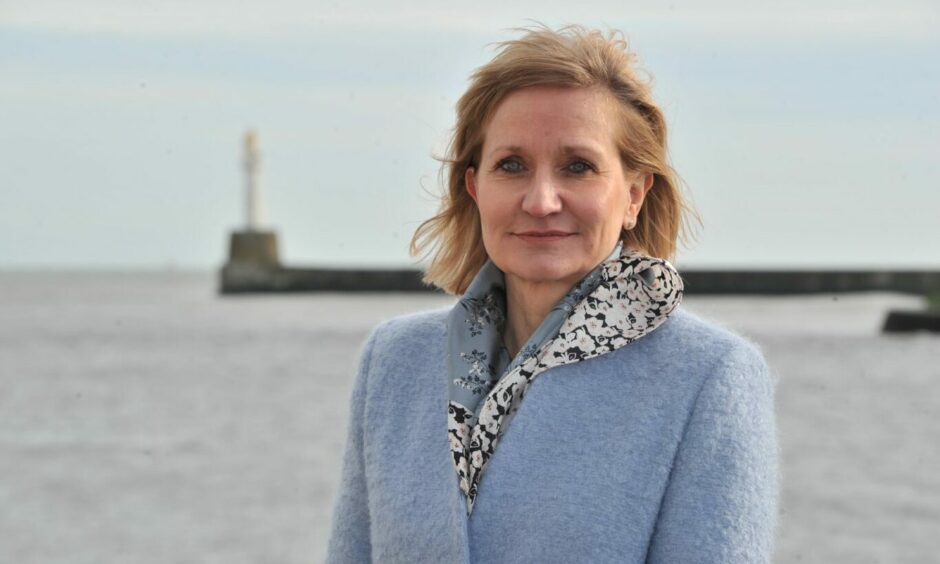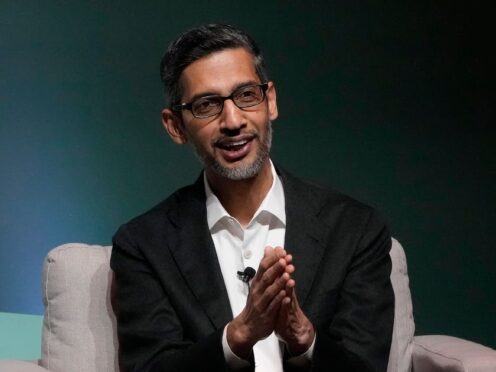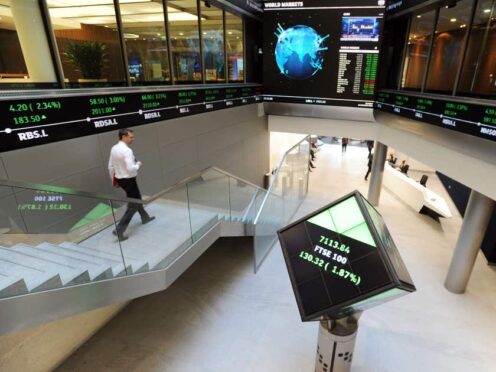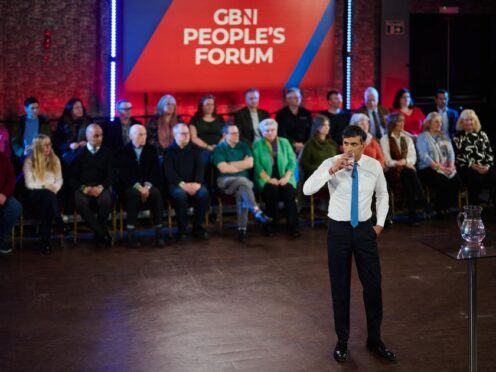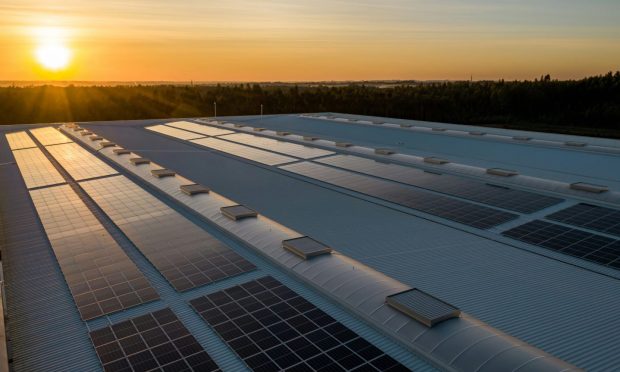A UK government plan to ensure the supply of clean, affordable energy in the UK has been criticised for failing on several counts.
The British Energy Security Strategy published late Wednesday aims to make British energy “cleaner, more affordable and more secure”.
It will focus on expanding nuclear, offshore wind and hydrogen infrastructure to ensure 95% of UK electricity is low carbon by 2030.
It also includes a commitment to a new licensing round for North Sea oil and gas in the Autumn and has promised to deliver “40,000 more jobs in clean industries” by the end of the decade.
Trades Union Congress (TUC) general secretary Frances O’Grady said the strategy “fails” to address climate change or help households facing a cost of living crisis as energy bills soar.
She said the plan “fails to rise to the challenge of the climate emergency” and “does little to reassure the millions of workers facing big falls in their living standards due to soaring energy costs”.
Energy conservation ‘entirely missing’
She also pointed to the lack of measures to reduce energy use – another widespread criticism of the plan.
“A mass home insulation programme would slash bills and create over 200,000 jobs. But it is entirely missing from the strategy,” she said.
“The strategy promises no new help to preserve jobs in energy-intensive industries, threatened by soaring energy costs.
“And it fails to invest in zero-carbon steel, electric vehicles, and clean manufacturing.
“Ministers should be far bolder. Now is the time for a strategy that defends and creates hundreds of thousands of jobs, delivers affordable energy to homes and workplaces and stops climate change.”
No support for cost of living crisis-hit households
The chairman of the Commons Business, Energy and Industrial Strategy committee said the strategy was a “missed opportunity” to help households struggling with their bills.
Labour MP Darren Jones said: “For families and businesses across the country energy security means being able to turn the heating or electricity on knowing you can afford to pay the bill.
Replacing gas power with more nuclear power is lower carbon, but nuclear isn’t renewable and it isn’t cheap.”
Labour MP Darren Jones
“Ministers continue to ignore the reality faced by millions of people with yet another missed opportunity to help bill payers and a failure to announce funding for the home insulation works required to reduce the amount of heating needed in the first place.
“Replacing gas power with more nuclear power is lower carbon, but nuclear isn’t renewable and it isn’t cheap.
“It’s disappointing that the Government has failed to seize the full opportunity of onshore wind and solar once again with no explanation other than disagreements within the Conservative Party.”
Ed Miliband, Labour’s shadow climate change and net zero secretary, added: “This relaunch will do nothing for the millions of families now facing an energy bills crisis.”
Speaking at Hinkley Point C, Boris Johnson denied that the Government was doing nothing to help families in the short term, saying: “We are really doing a huge amount for the immediate cost of living.
“This (energy strategy) is about tackling the mistakes of the past and making sure that we are set well for the future and we are never again subject to the vagaries of the global oil and gas prices and we can’t be subject to blackmail, as it were, from people such as Vladimir Putin, we have energy security here in the UK.”
Russian invasions risks UK energy security
Prime Minister Boris Johnson said energy bills had been going up around the world and “absolutely soared” after Vladimir Putin’s invasion of Ukraine.
“We just can’t carry on like this,” he said in a social media video promoting his new energy strategy.
Ending dependence on foreign oil and gas would make supply more secure, he said, with a shift to British fossil fuels during the transition to cleaner forms of energy.
That would involve “capturing their emissions and storing them safely under the sea”, he said.
However, the government strategy has also come under criticism for failing to bring forward support for carbon capture and storage in the north-east.
Ryan Crighton, policy director at Aberdeen & Grampian Chamber of Commerce, said lack of support for the Scottish cluster which is behind plans to develop CCS and hydrogen was a “failure” and a “missed opportunity”.
The cluster, which has a project called Acorn based in Peterhead at its heart, was sidelined in a recent UK Government funding competition in favour of projects in the north of England.
The government has pledged to publish “delivery roadmaps” this month for CCUS and hydrogen in order to “provide clear signals to industry to invest”.
Protecting supply chain jobs
Trade bodies and union leaders said UK companies and workers must be prioritised in the manufacture and operation of new infrastructure promised in the strategy.
Offshore Energies UK (OEUK) chief executive Deirdre Michie said that without support the sector was at risk of being undermined, leaving the nation “increasingly reliant on other countries.”
She added: “Do we make the most of our own resources and use these to provide energy security now and support the development of a homegrown low-carbon energy industry for the future?
“Or do we outsource the manufacturing and construction of our new energy infrastructure to other countries and import the billions of pounds worth of equipment needed?
“Both destinations reach net zero but outsourcing to other countries undermines our own companies and workers and reduces our energy security by making us more dependent on imports.”
The UK’s offshore energy sector currently supports about 195,000 jobs, according to OEUK.
Outsourcing to other countries undermines our own companies and workers and reduces our energy security by making us more dependent on imports.”
Deirdre Michie chief executive of Offshore Energies UK
Ms Michie said that these companies and their workforces were the “bedrock” on which the UK should build its new low-carbon energy infrastructure.
“I want to remind politicians of all parties and countries that energy security is now national security and ask them to recognise the vital role that our oil and gas operators and supply chain play in providing energy now – and to support them as they evolve to build our low-carbon future.”
Promises ‘don’t stack up’
Energy union GMB responded with similar sentiments.
GMB general secretary Gary Smith said that despite the ambition of the strategy, there were “serious questions” about the lack of specific commitments on UK jobs.
“Lofty promises of tens of thousands of jobs in offshore wind just don’t stack up when the UK continues to award vital new projects to companies based in authoritarian regimes.
“The UK should be building this energy future, not surrendering it to other nations.”
The union also urged the need for home-grown nuclear manufacturing and skills in response to the strategy’s call to build 24GW of new capacity by 2050.
“At least the government has finally woken up to what GMB has been saying for years: new reactors are the only way we can secure the UK’s energy security and there can be no net zero without new nuclear.”
Mr Smith called for clarity on the new reactors, small modular reactors (SMRs) and their associated supply chains, “so that jobs are created at home and not shipped overseas.”
“After years of dither and delay, it’s time to get on with it and put spades in the ground.”
The SNP Government says it will halt any attempts to bring new nuclear power developments to Scotland, despite a new UK energy strategy pledging up to eight new reactors.
